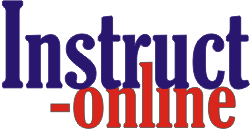
 Phone
(319) 626-2302
Phone
(319) 626-2302
Catalog Number : ngd1014
Title : 60 Tips to Reduce Medication Errors
Speaker : Sue Dill
Webplay Recording Date : 6-28-2016
Webplay Price : $ 150 for two weeks viewing
Webinar Overview:
This webinar will cover areas of interest to healthcare practitioners to reduce medications errors. Healthcare facilities in all settings should seek to create high reliability organizations that constantly improve the safety and quality of medication use. The evidence based literature demonstrates over 60 tips for hospitals and other healthcare facilities that can help to reduce medication errors and improve patient safety.
Medication errors are the most common type of medical errors in healthcare. Adverse drug events account for 30% of all hospital-acquired conditions. An IOM report estimated that a hospital patient is subject to one medication error per day with considerable variation in rates across facilities. The HHS National Action Plan for Adverse Drug Event found that adverse drug events affect one-third of all hospital admissions and prolong length of stay 1.7 to 4.6 days. The US Department of Health and Human Service (HHS) have set a goal to reduce ADEs by 50%.
Webinar Objectives:
- Describe that the Joint Commission has a medication management tracer
- Discuss tips to reduce medication errors in your facility
- Recall that medication errors are the most common type of medical error
- Describe that the CMS Hospital Conditions of Participation have a section addressing self-administration of medication
Target Audience:
This program is for anyone involved in the medication process or who is interested in reducing medication errors in healthcare, especially nurses, pharmacists, pharmacy technicians, physicians, chief nursing officer, chief medical officer, nurse educators, nurse managers, nursing supervisors, risk managers, hospital attorneys, compliance officers, and quality and performance improvement coordinator, patient safety officer, risk managers, medication safety officer, Joint Commission coordinator, quality manager, nurse managers, pharmacy staff, policy and procedure committee members, case managers, nurse educators, medication team members, patient safety committee members and others who participate in the medication process should attend.
Webinar Outline:
- Introduction
- Joint Commission sentinel event alerts
- Pediatric medication errors
- TJC sentinel event alerts related to medications
- Oral syringes for oral medication
- AHRQ PS Net on medication evidenced based literature
- Limited number of drug concentrations
- Weighing pediatric patients in Kg only
- FDA Safe Use Program
- CMS medication/pharmacy standards
- CMS 3 timing of medications
- Standing orders for medication revisions
- Safe opioid use guidelines by CMS
- CMS self administration of medications
- Drug safety resources
- Drug shortage issues
- Investigational drugs
- APA Children guidelines
- Medication errors in children
- Standing orders, protocols, order sets and CMS
- Off label use
- Formulary
- High risk medications
- Clarification of unclear orders
- Drug recalls
- First dose of medication rule
-
CMS hospital CoP on medications and recent memos
- Insulin pens
- Safe injection practices
- CMS worksheet
- Joint Commission selected medication management chapter
- Practice medication management tracer (Joint Commission)
- Medication management champions
- PCA by proxy
- Drug used as a restraint
- Hospital discharges
- Medication reconciliation
- Use of trigger tools for adverse drug errors
- Prevent Vincristine errors
- Neurological blocking agents
- Prevent contrast induced nephropathy
- Recent drugs in the news (Phenergan etc.)
- Anticoagulants
- Preventing Heparin errors
- Medication boards
- Do not crush medication list
- Safe injection practices
- APAP on label
- New labeling of injectibles
- DTaP-Tdap mix-up
- EPI injectible shortage and errors
- Single and multi-dose vials and CDC guidelines
- Medication labeling etc.
Contact Hours:
- Nursing participants: Instruct-online has approved this program for 2.4 contact hours, Iowa Board of Nursing Approved Provider Number 339.Completion of offering required prior to awarding certificate.
- All other participants: Must attend the entire Webinar and complete a Webinar critique to receive a 2 Hour Attendance Certificate for each program.
Refund Policy:
Full tuition is refunded immediately on request if the participant has not been sent the program materials and instructions. Once the instructions (including access codes) have been sent, a full refund will be issued only after the program runs and it is verified that the participant did not access the program
.